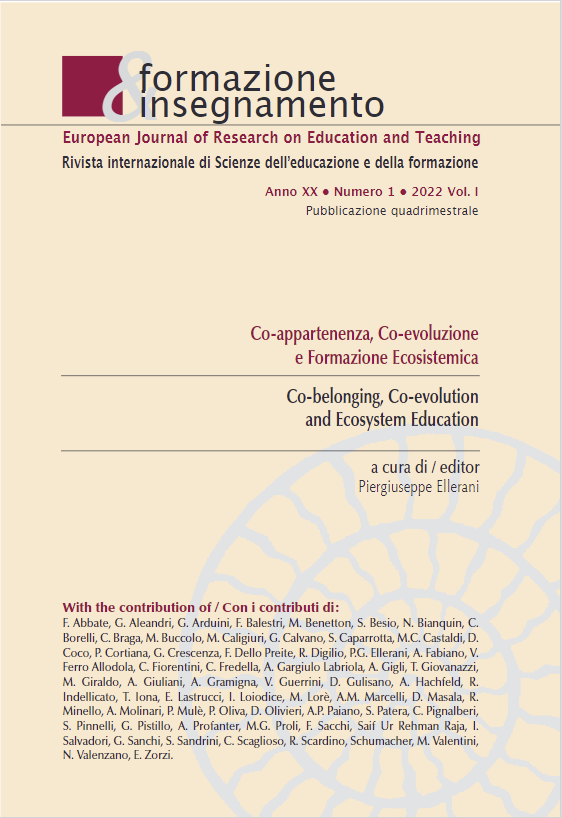Permaculture Principles as a Teaching Design System
DOI:
https://doi.org/10.7346/-fei-XX-01-22_29Keywords:
Permaculture, Educational design, Ethics, NatureAbstract
Nowadays, focus is laid on environmental health and climate changes as social justice issues. Permaculture can be considered a systems-based approach to problem-solving, based on cycles, processes, and principles observed in nature. According to Permaculture principles, a garden or landscape, planting, sowing, growing, and the design of the landscape are practiced in ways that mimic processes in nature and reflect an understanding of water flow, wind patterns, earth and soil composition, beneficial plants and insects, zones of growth and many other elements. In the last few years, permaculture principles have been extended from garden and landscapes to the realm of “social permaculture”. Didactic gardens act as rich sustainable learning sites due to their ecological and socio-cultural advantages and provide students a practical way to commit themselves in interconnected issues and join in complex problem-solving. Permaculture Design Approach, therefore, is a way to recreate nature’s principles in our own lives, interactions, and educational and social contexts. This article seeks to outline “permaculture” as the possible contribution within the definition of a new dimension of teaching and educational design, able to successfully embrace the most emerging issues led to sustainability.
Downloads
Published
How to Cite
Issue
Section
License
Copyright (c) 2022 Giovanni Arduini

This work is licensed under a Creative Commons Attribution 4.0 International License.
Formazione & insegnamento is distributed under Attribution 4.0 International (CC BY 4.0).
For further details, please refer to our Repository & Archiving Policy, as well as our Copyright & Licensing Terms.





